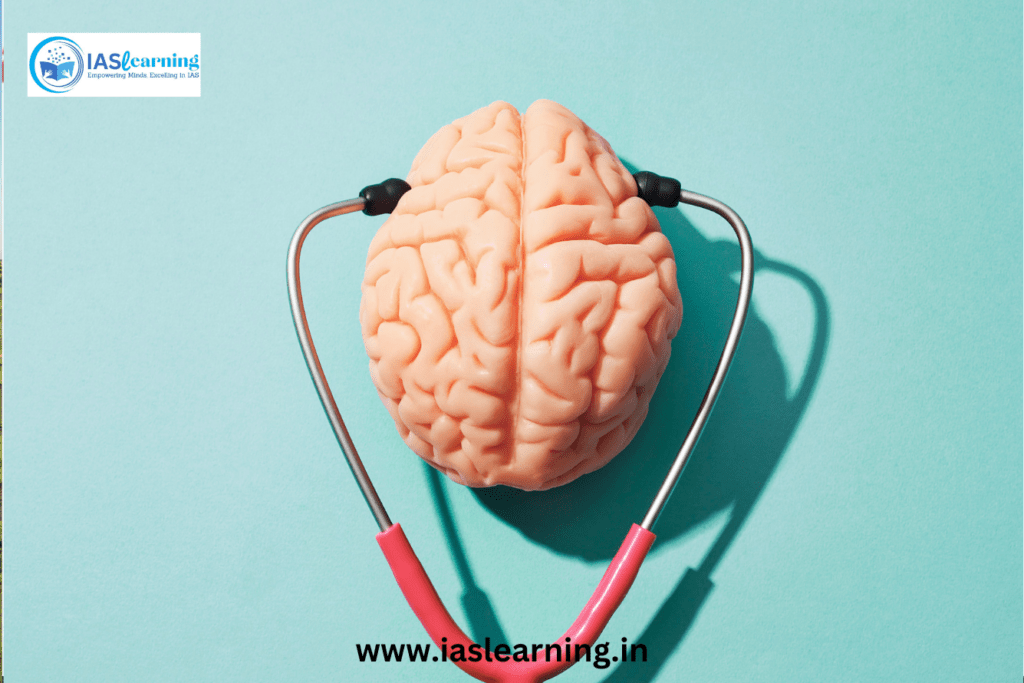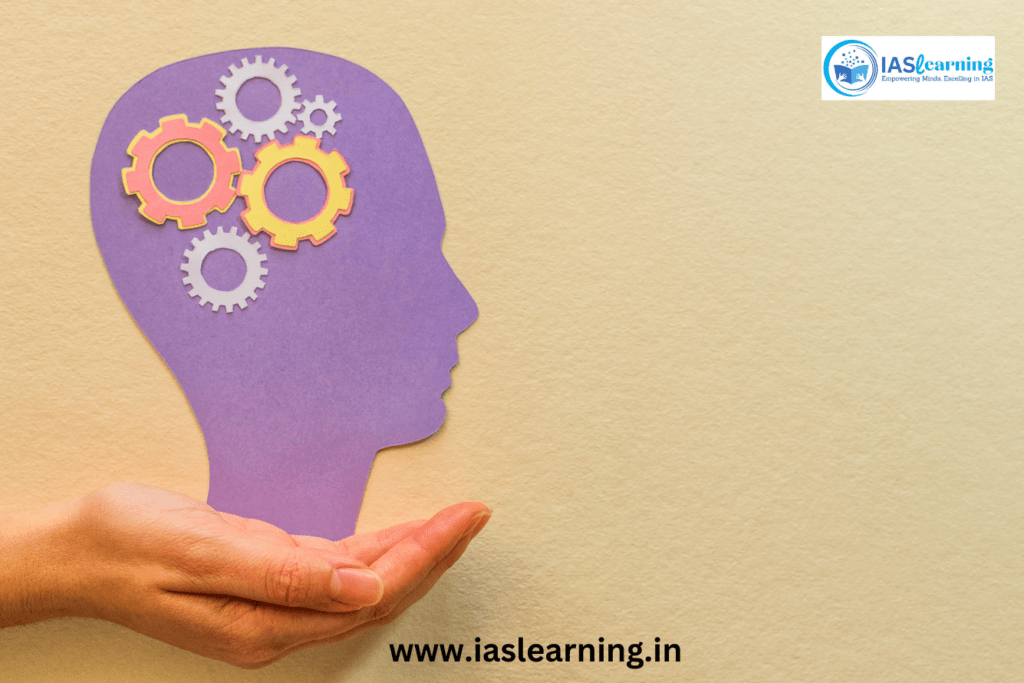Table of Contents
What’s the best way to deal with mental health?
Dealing with mental health effectively is a crucial aspect of overall well-being. Mental health issues can affect anyone, and they are a growing concern worldwide. This article will explore various strategies and approaches for managing and maintaining good mental health, encompassing preventive measures, coping strategies, professional help, and societal aspects. Here’s a comprehensive guide on the best ways to deal with mental health.
Introduction
Mental health encompasses emotional, psychological, and social well-being. It affects how we think, feel, and act. It also influences our ability to handle stress, relate to others, and make choices. Maintaining good mental health is essential for leading a fulfilling life. In this article, we will delve into the best ways to deal with mental health, encompassing a holistic approach that includes prevention, coping strategies, seeking professional help, and addressing societal aspects.

Preventive Measures
- Self-awareness: Understanding your emotions, triggers, and stressors is the first step in maintaining good mental health. Self-awareness helps identify potential issues and empowers individuals to take proactive measures.
- Healthy Lifestyle: Regular physical activity, a balanced diet, and adequate sleep play a crucial role in mental health. Exercise releases endorphins, which are natural mood lifters, and a nutritious diet provides essential nutrients for brain function.
- Stress Management: Learning effective stress management techniques, such as mindfulness, deep breathing exercises, and relaxation, can reduce the impact of stress on mental health.
- Social Connections: Building and nurturing social connections is vital. Strong relationships provide emotional support and reduce feelings of isolation.
- Limit Substance Use: Excessive alcohol or drug consumption can exacerbate mental health issues. Reducing or eliminating substance use can improve mental well-being.
Coping Strategies
- Talk About It: Open communication with friends, family, or a mental health professional can provide emotional support and help in processing difficult emotions.
- Mindfulness and Meditation: Mindfulness practices can improve emotional regulation and reduce symptoms of anxiety and depression. Meditation helps calm the mind and promote relaxation.
- Journaling: Writing down thoughts and feelings can provide insight into emotions and help manage stress.
- Set Realistic Goals: Break down goals into achievable steps. This can reduce feelings of being overwhelmed and increase a sense of accomplishment.
- Engage in Creative Activities: Art, music, and other creative outlets can be therapeutic and provide an emotional release.
Current state of mental health practices in India:
- Traditional Practices: India has a rich tradition of mental health practices, including yoga, meditation, and Ayurveda. These holistic approaches are gaining recognition worldwide for their potential benefits in managing mental health.
- Psychiatry and Psychology Services: Urban areas in India offer access to mental health professionals such as psychiatrists, psychologists, and counselors. These professionals provide diagnostic assessments, therapy, and medication management.
- Government Mental Health Facilities: The Indian government operates mental health facilities and hospitals that offer affordable mental health services. However, there is a shortage of mental health professionals and resources, particularly in rural areas.
- Community Health Workers: In rural and remote areas, community health workers play a crucial role in identifying and referring individuals with mental health issues to appropriate services.
- Telemedicine: Telemedicine is gaining popularity, especially in the wake of the COVID-19 pandemic. It has improved access to mental health services in remote regions.
- Awareness and Advocacy: Mental health awareness campaigns and advocacy efforts are on the rise in India. Organizations and individuals are working to reduce the stigma associated with mental health issues.
- Crisis Helplines: Several crisis helplines, such as Vandrevala Foundation and Roshni, offer immediate support to individuals in distress. These helplines have become essential during the pandemic.
- School-Based Programs: Some educational institutions have introduced mental health programs and counseling services to support students’ emotional well-being.
- Corporate Mental Health Initiatives: Employers are recognizing the importance of employee mental health and are offering Employee Assistance Programs (EAPs) and stress management workshops.

Challenges in Indian Mental Health Practices:
- Stigma: Stigma surrounding mental health remains a significant barrier to seeking help. Many individuals fear discrimination and social ostracization if they disclose their mental health issues.
- Shortage of Mental Health Professionals: India faces a severe shortage of trained mental health professionals, particularly in rural areas. This shortage limits access to quality mental health care.
- Lack of Awareness: Many people in India lack awareness about mental health conditions, their symptoms, and available treatments. This lack of knowledge can delay diagnosis and treatment.
- Affordability: Despite government initiatives, mental health care remains unaffordable for many, particularly those without health insurance.
- Inadequate Government Funding: The allocation of funds for mental health services in India is disproportionately low compared to the burden of mental health issues.
- Cultural Factors: Cultural beliefs and practices can sometimes contribute to or exacerbate mental health problems, making it challenging to address them effectively.
Seeking Professional Help
- Therapy: Psychotherapy, or talk therapy, can help individuals work through emotional and psychological issues. It provides tools to manage symptoms and improve mental health.
- Medication: In some cases, mental health conditions are treated with medication prescribed by a psychiatrist. Medication can help balance brain chemicals and alleviate symptoms.
- Support Groups: Joining support groups for specific mental health conditions can provide a sense of community and understanding.
- Telehealth Services: Online therapy and telehealth options have become increasingly popular, making mental health support more accessible.
Societal Aspects

- Reduce Stigma: Society should work towards reducing the stigma associated with mental health issues. Open discussions and awareness campaigns can help break down barriers to seeking help.
- Workplace Mental Health: Employers can create a supportive work environment by offering resources like Employee Assistance Programs (EAPs) and promoting work-life balance.
- Education: Integrating mental health education into school curricula can help young people understand and manage their emotions effectively.
- Access to Care: Governments and healthcare systems should ensure access to affordable mental health care services for all, regardless of socioeconomic status.
- Community Support: Communities can establish mental health outreach programs and crisis hotlines to provide immediate assistance to those in need
Some Common mental health practices along with examples:
1. Mindfulness Meditation:
- Practice: Mindfulness meditation involves focusing on the present moment without judgment. It can be done through guided sessions or independently.
- Example: “I practice mindfulness meditation for 10 minutes each morning. I sit in a comfortable position, close my eyes, and pay attention to my breath, letting go of any distracting thoughts.”
2. Journaling:
- Practice: Journaling is the act of writing down your thoughts, emotions, and experiences in a journal or notebook.
- Example: “I find journaling therapeutic. Every evening, I write down three things I’m grateful for and reflect on my day’s challenges and successes.”
3. Deep Breathing Exercises:
- Practice: Deep breathing exercises involve taking slow, deep breaths to calm the mind and reduce stress.
- Example: “When I feel anxious, I practice deep breathing. I inhale deeply for a count of four, hold for four, and exhale for four. It helps me feel more centered.”
4. Yoga:
- Practice: Yoga combines physical postures, breathing exercises, and meditation to promote relaxation and mental well-being.
- Example: “I attend yoga classes twice a week. It not only keeps me physically fit but also helps me stay mentally balanced and reduces my stress.”
5. Seeking Professional Help:
- Practice: When dealing with severe or persistent mental health issues, it’s essential to seek help from mental health professionals such as therapists, counselors, or psychiatrists.
- Example: “I’ve been struggling with anxiety for a while now, so I decided to seek professional help. I’m currently seeing a therapist who provides guidance and coping strategies.”
6. Self-Compassion:
- Practice: Self-compassion involves treating yourself with the same kindness and understanding that you would offer to a friend when facing challenges or setbacks.
- Example: “Instead of being too hard on myself when I make a mistake, I practice self-compassion. I remind myself that it’s okay to be imperfect, just like everyone else.”
7. Setting Boundaries:
- Practice: Setting healthy boundaries means defining what you are comfortable with and communicating those limits to others to protect your mental well-being.
- Example: “I’ve started setting boundaries at work by not checking emails after a certain time. It’s helped me reduce work-related stress and have more personal time.”
8. Gratitude:
- Practice: Practicing gratitude involves regularly acknowledging and appreciating the positive aspects of your life.
- Example: “Every night, my family and I share something we’re grateful for at the dinner table. It’s become a lovely practice that uplifts our spirits.”
9. Social Connection:
- Practice: Building and maintaining social connections with friends and loved ones can contribute significantly to mental health.
- Example: “I make an effort to call or meet up with friends regularly. These connections provide emotional support and make me feel less isolated.”
10. Stress Reduction Techniques: – Practice: Engaging in activities that reduce stress, such as listening to music, taking a bath, or going for a walk, can help manage daily pressures. – Example: “When I’m stressed, I practice stress reduction techniques like taking a warm bath with calming essential oils. It’s my way of unwinding and relieving tension.”
Some tips to help you get started with self-care:
- Get regular exercise. Just 30 minutes of walking every day can help boost your mood and improve your health. Small amounts of exercise add up, so don’t be discouraged if you can’t do 30 minutes at one time.
- Eat healthy, regular meals and stay hydrated. A balanced diet and plenty of water can improve your energy and focus throughout the day. Also, limit caffeinated beverages such as soft drinks or coffee.
- Make sleep a priority. Stick to a schedule, and make sure you’re getting enough sleep. Blue light from devices and screens can make it harder to fall asleep, so reduce blue light exposure from your phone or computer before bedtime.
- Try a relaxing activity. Explore relaxation or wellness programs or apps, which may incorporate meditation, muscle relaxation, or breathing exercises. Schedule regular times for these and other healthy activities you enjoy such as journaling.
- Set goals and priorities. Decide what must get done now and what can wait. Learn to say “no” to new tasks if you start to feel like you’re taking on too much. Try to be mindful of what you have accomplished at the end of the day, not what you have been unable to do.
- Practice gratitude. Remind yourself daily of things you are grateful for. Be specific. Write them down at night, or replay them in your mind.
- Focus on positivity. Identify and challenge your negative and unhelpful thoughts.
- Stay connected. Reach out to your friends or family members who can provide emotional support and practical help.
